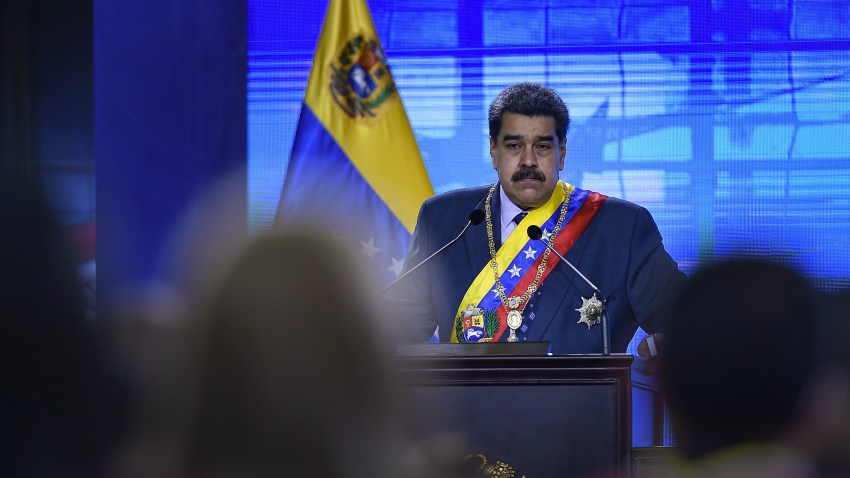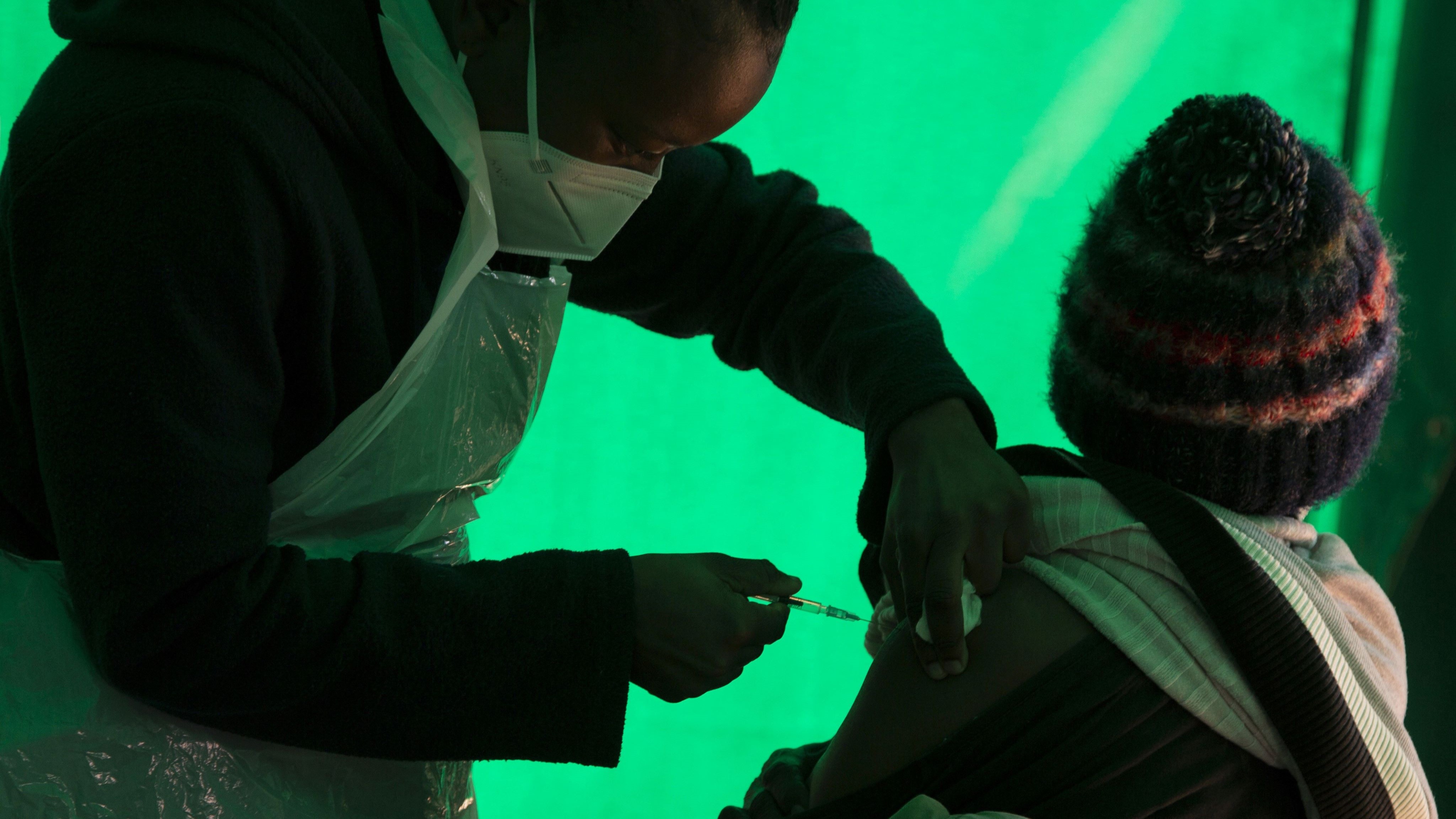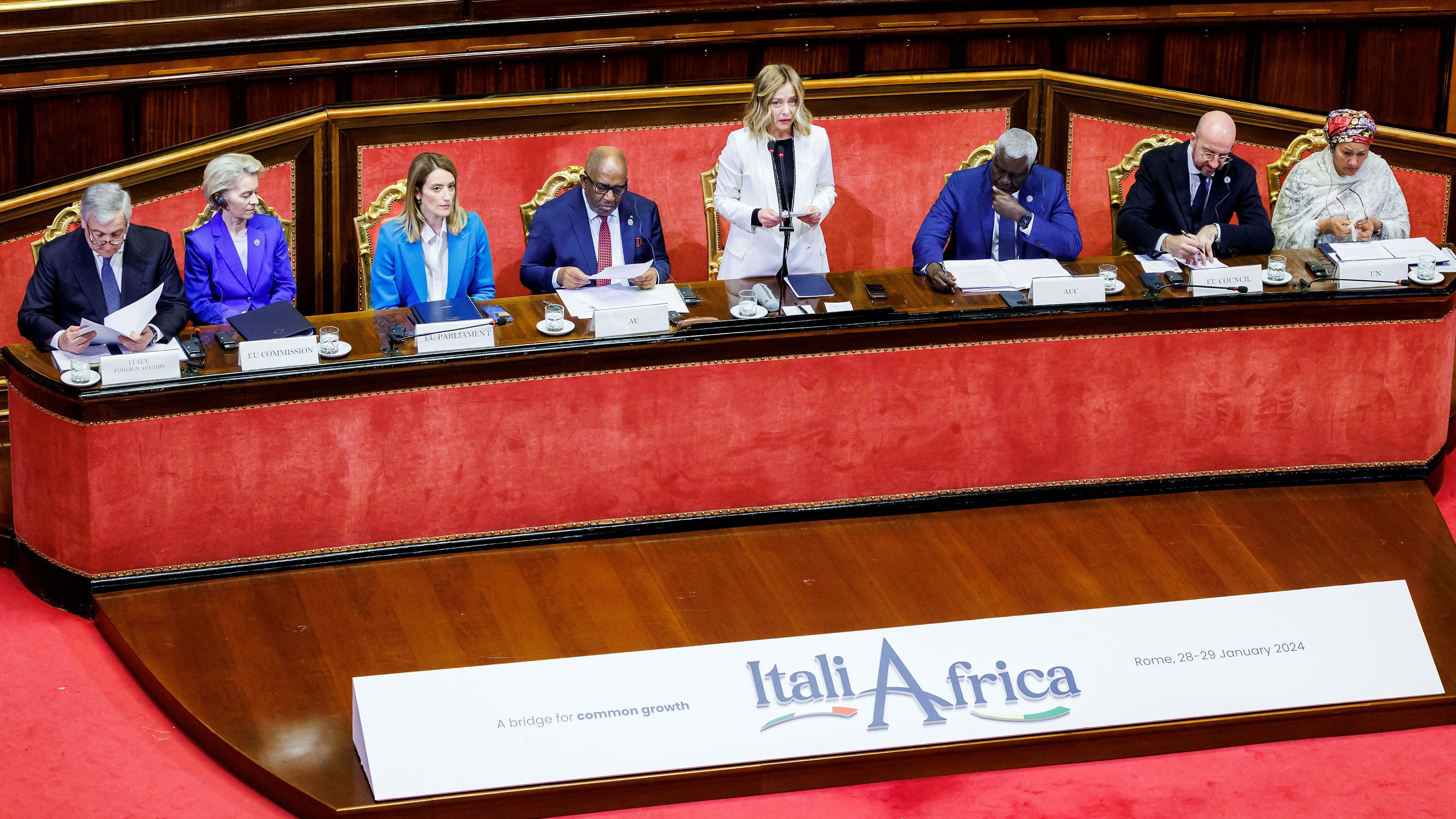Today’s Top Story
The U.S. allowed sanctions relief on Venezuela’s oil and gas sector to expire yesterday. The relief had been granted in October as an unofficial part of an election deal between the regime of Venezuelan President Nicolas Maduro and the country’s opposition. The U.S. State Department said Maduro failed to comply with the deal, which was meant to improve the opposition’s ability to freely contest this year’s presidential election. (Washington Post)
Our Take
As we’ve written before, the Venezuela election deal has been on life support virtually since it was signed. Still, while few observers expected the Maduro regime to uphold the agreement in its totality, there was room for cautious optimism that the deal would at least level the playing field in this year’s election enough to give the opposition a fighting chance.
Now, with the sanctions on Venezuela’s oil and gas sectors reimposed, the election deal has officially unraveled, and that optimism has vanished entirely. That leaves Venezuela’s opposition in exactly the same position it has been in since 2015, in which elections are the only hope of unseating Maduro, but are so undemocratic that they offer no hope at all.
Meanwhile, the U.S. decision underscores the knotty challenge that Venezuela’s political crisis presents to Washington and other states with an interest in resolving it. Applying maximum pressure on the Maduro regime with sanctions did not change its behavior. Neither has engaging with the regime, which began toward the end of former President Donald Trump’s administration and gathered pace under President Joe Biden’s. What’s left is a pessimistic but realist approach to Caracas, in which Washington continues to maintain open channels of communication with the Maduro regime, while keeping expectations for any positive outcomes low.
More broadly, the unraveling of the election deal highlights another trend in U.S. foreign policy over the past 10 to 15 years: the overreliance on targeted sanctions to punish foreign governments and pressure them to change their behavior.
While sanctions are often effective at inflicting pain on political elites and even entire sectors of the targeted countries’ economies, they have notched few victories when it comes to changing behavior. The most prominent example of the latter was with regard to Iran, when U.S. sanctions and the promise of removing them were among the factors that led Tehran to negotiate the multilateral nuclear deal nearly a decade ago. But that success was undermined just three years later, when the Trump administration unilaterally withdrew from the nuclear deal and reimposed sanctions on the Iranian regime, undermining Washington’s credibility among adversaries and partners alike.
While sanctions have an unimpressive track record when it comes to their effectiveness as a coercive tool, another longstanding criticism of Washington’s increasing reliance on them has proven less prophetic: that doing so would undermine the supremacy of the U.S. dollar by driving foreign governments to seek alternatives to it for use as the global reserve currency and to conduct international trade. Such a development would in turn render U.S. sanctions toothless, among many other significant consequences for U.S. power. But since no viable alternatives to the dollar exist, it hasn’t happened.
Still, it is an inescapable reality that Washington has doubled down on a strategy that simply is not achieving its objectives. The latest developments in Venezuela are a stark reminder of that.
Read more: Erica Gaston’s column from 2022 on what makes targeted sanctions ineffective.
On Our Radar
Scientists are closing in on longer-acting drugs to treat HIV, which could be available in the next five to 10 years, the New York Times reports. These new therapies would replace daily pills, which have been available since the late 1990s and have made an HIV diagnosis no longer a death sentence, at least in the wealthy countries of the Global North.
In the Global South, those life-saving drugs were priced out of reach of most people, and an intellectual property agreement called TRIPS prevented the production of more affordable generic versions of HIV drugs. As Andrew Green wrote in 2021, the rules in the TRIPS agreement have been relaxed somewhat—in part because of unequal access to HIV treatment—but not enough to avoid similar outcomes, as evidenced by the “vaccine apartheid” seen during the COVID-19 pandemic.
Vaccine ‘Apartheid’ Is Galvanizing Calls to Overhaul the TRIPS Regime
Nov. 30, 2021 | The stark disparities in access to COVID-19 vaccines have spotlighted the flaws in global intellectual property protections. Read more.
For the fourth time in the past year, Italian PM Giorgia Meloni visited Tunisia yesterday. While there, she met with Tunisian President Kais Saied and signed new accords as part of Italy’s recently unveiled “Mattei Plan.” But the visit was also marked by tensions over Tunisia’s potential role in EU efforts to limit migration from Africa.
The Mattei Plan, which is aimed at forming partnerships with African countries and backed by substantial financial commitments, was introduced in February as part of Meloni’s effort to position Italy as a “bridge” between Europe and Africa. As Emanuele Rossi wrote at the time, though, the inherent contradictions of the event—including with regard to migration—were not entirely concealed, revealing challenges that will be difficult to resolve.
Meloni Wants Italy to Be Europe’s New ‘Bridge’ to Africa
Feb. 26, 2024 | Italian Prime Minister Giorgia Meloni’s new Africa policy presents both a test and an opportunity for Italy and Europe. Read more.
Unidentified gunmen attacked a customs post in Benin near the border with Niger on Tuesday, killing three people and wounding one. Since 2021, Benin has been battling a violent jihadist insurgency in the country’s north that crossed over from its neighbors, Burkina Faso and Niger. Unfortunately, as Leif Brottem wrote last year, Benin is repeating the same tragic mistakes made over the past decade by those neighbors.
Bjorn Hocke, a prominent leader in Germany’s far-right AfD party, stands trial today on charges that he used banned Nazi slogans at a political rally. The AfD’s rise has in part been driven by its willingness to appeal to historical revisionism about the country’s Nazi history. But as Alexander Clarkson wrote in September, that phenomenon has deep roots that predate the AfD.
More from WPR
- John Boyce on the EU’s new migration pact.
- Frida Ghitis on Georgia’s EU accession battle.
- Alexander Clarkson on the U.S. Navy’s readiness crisis.
- Duncan Money on the UAE’s mining investments in Africa.



